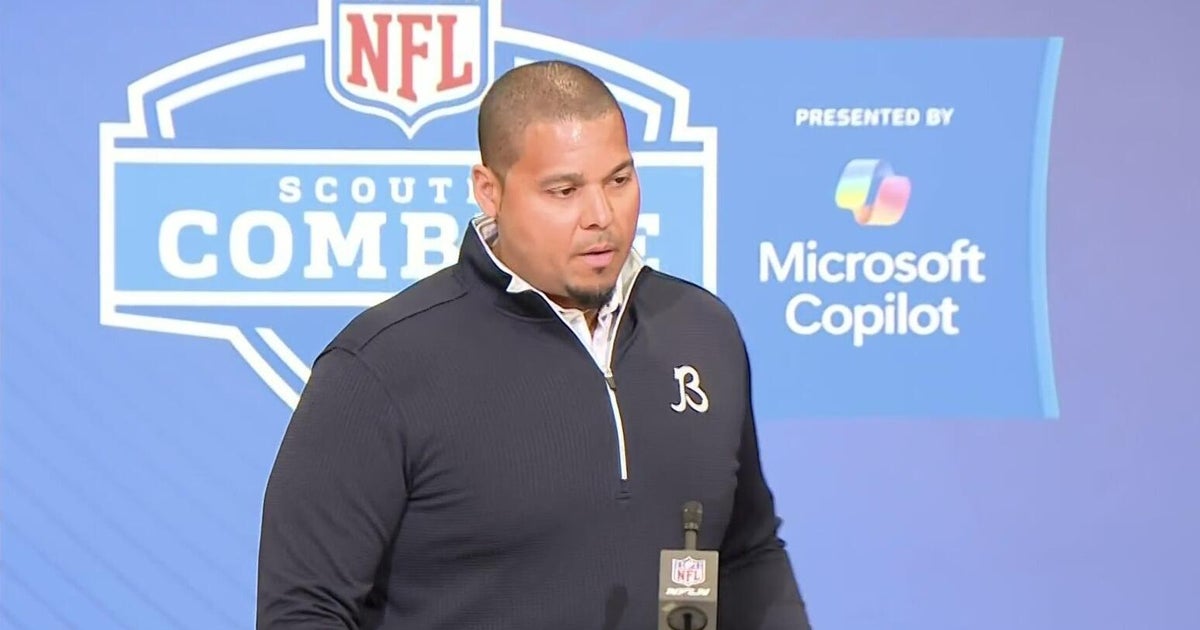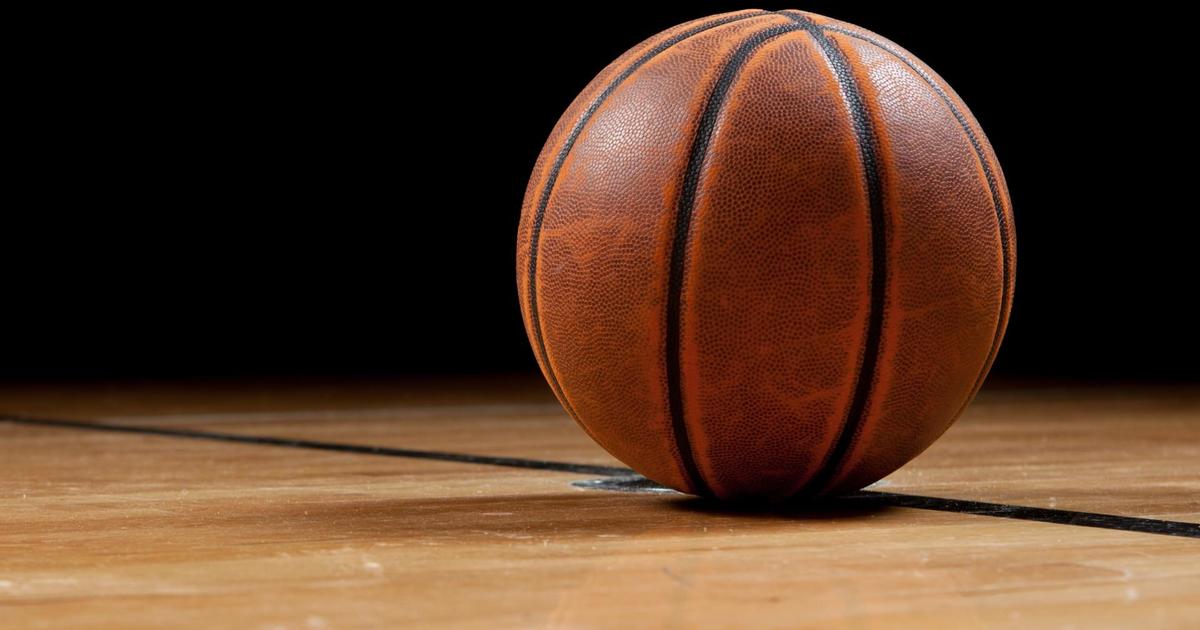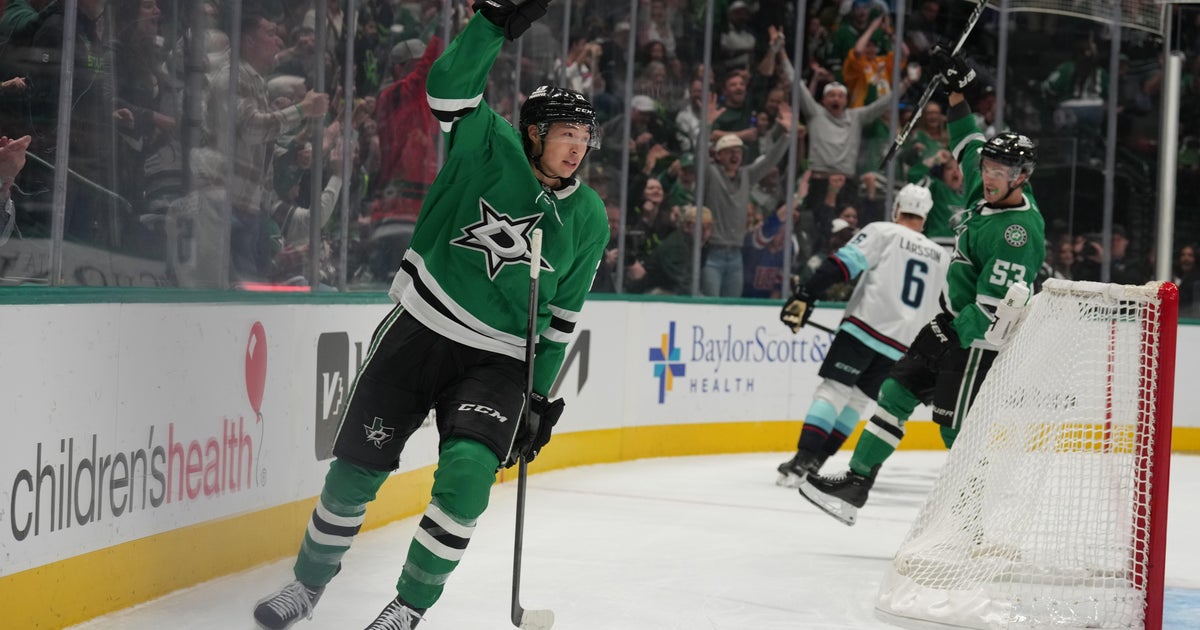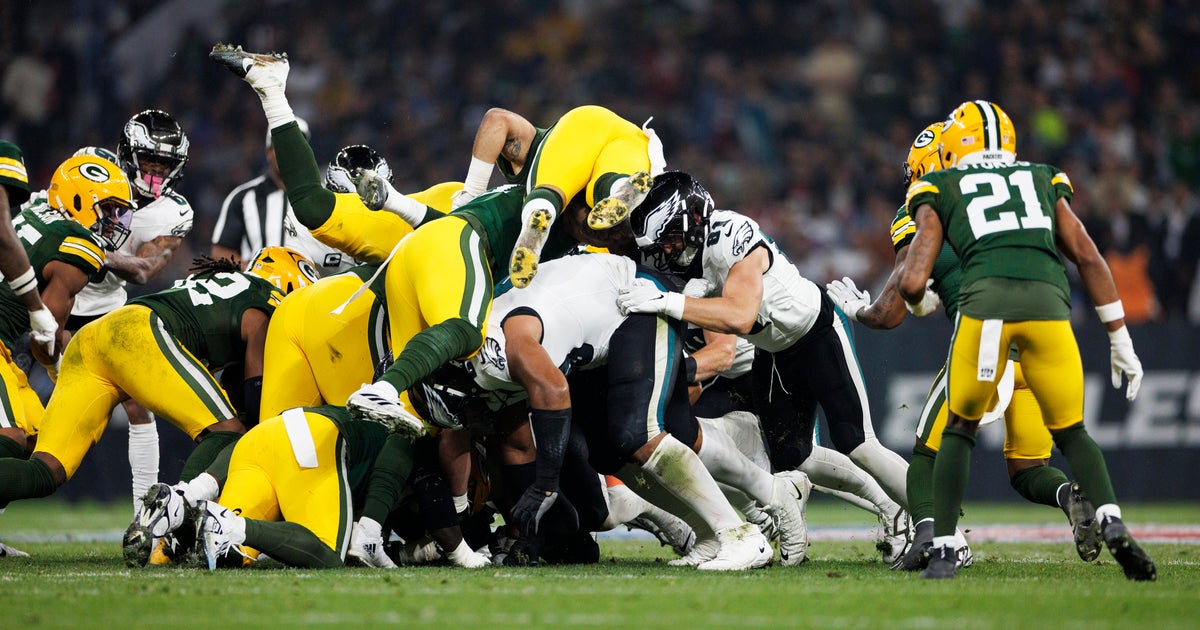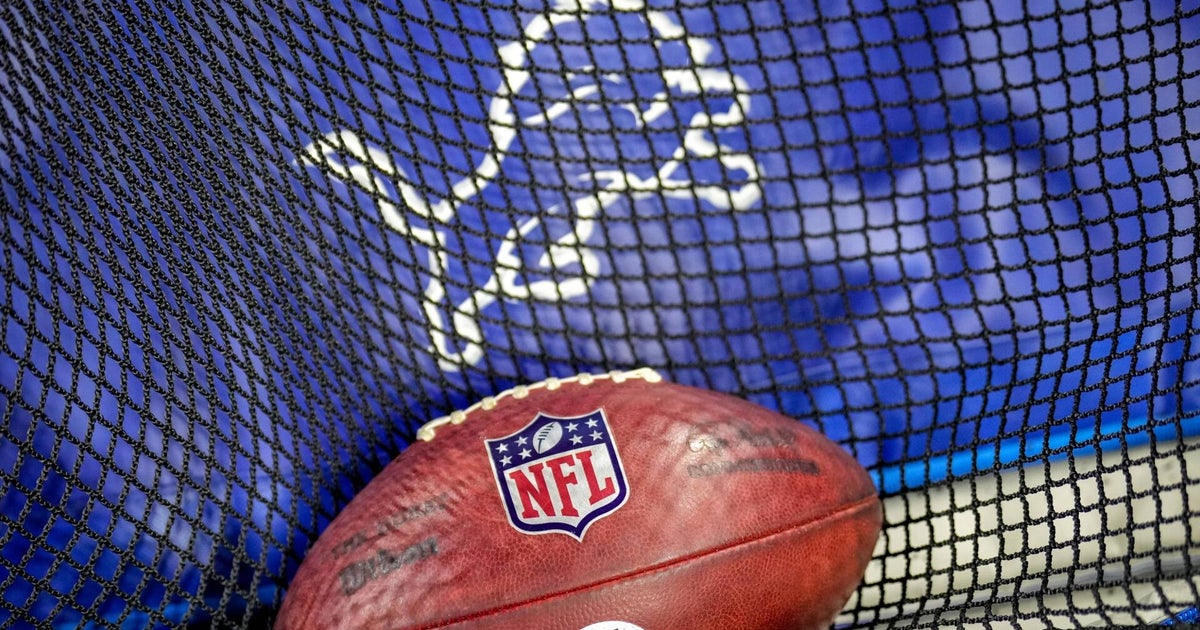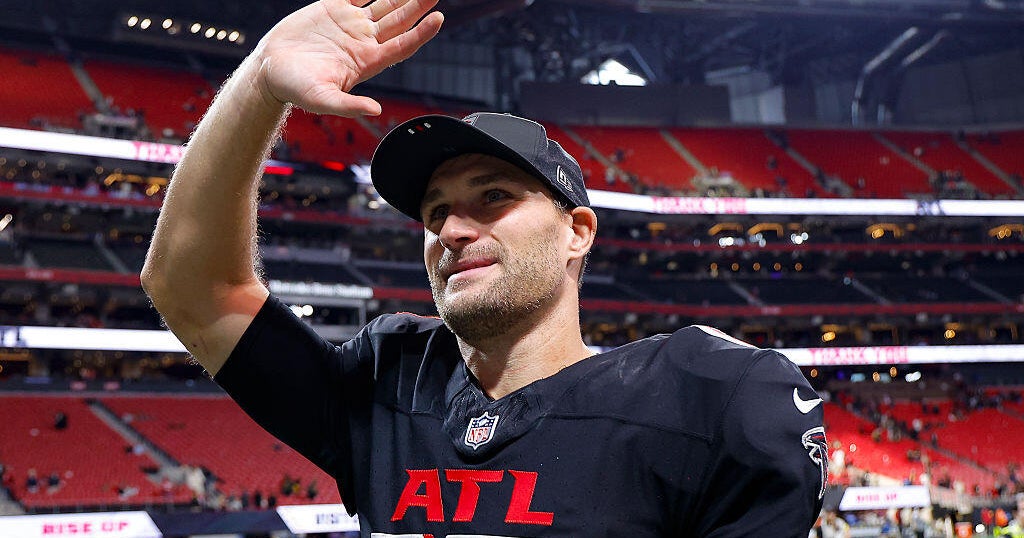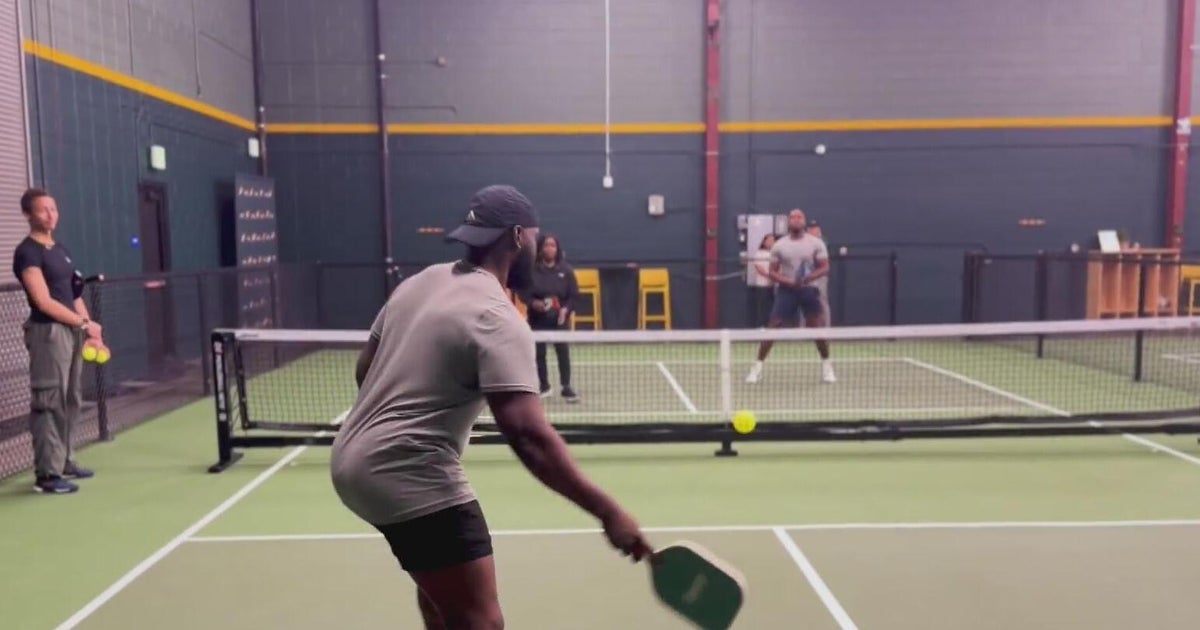10 Things That Can Prevent Patriots From Winning Super Bowl LII
By Michael Hurley, CBS Boston
BOSTON (CBS) -- There's been one consistent, lasting complaint resonating loudly in the wake of three straight NBA Finals matchups between the Warriors and Cavaliers: The NBA season has become so predictable that there's no use in even wasting everyone's time. The league should go ahead and skip right to the Finals if we already know the participants.
The NFL is not quite in that territory -- not even close, actually -- but there is one team threatening to replace the league's sacred parity with the dreaded predictability.
In fairness, the myth of parity has only existed in PR speak. Reality shows that the AFC has been represented by just six of a possible 16 teams since Y2K was a national concern.
Yet the Patriots have pushed the limits quite a bit, appearing in seven Super Bowls since 2001. More recently, of course, they've participated in and won two of the last three Super Bowls, and they fell just a few points shy of reaching the other Super Bowl. They've also spent the offseason acting as if they just got blown out in a wild-card game in most embarrassing fashion.
They've reloaded. Tom Brady is the odds-on favorite to be the league MVP. Vegas set its highest-ever over-under for them at 12.5, and they're head-and-shoulders above everybody else when it comes to Super Bowl odds.
According to Bovada, the Patriots are at +190 to win the AFC. The next-closest teams (Pittsburgh, Oakland) are at +700. To actually win the Super Bowl, the Patriots are at +375, with Green Bay (+750) a distant second and four other teams at +1200.
Really, it's the Patriots and then everybody else.
That's good news for New England, yes, but the other cruel NFL reality is that the best team doesn't always win. The season is long and -- for now -- still mostly unpredictable. Most experts and analysts may be expecting to see the Patriots in Minneapolis representing the AFC in yet another Super Bowl next February, but, well, most experts and analysts end up being wrong.
The Patriots will be playing in Super Bowl LII. Maybe. Probably? As much as it seems like a sure thing, it's too hard to say. So, for the sake of exercise (and intrigue to the 2017 season), here's a rundown of what could ultimately keep the Patriots from laying waste to the rest of the NFL from September through January.
1. INJURIES
This is the most obvious possibility, but it's not just about Tom Brady. A season-ending loss at either of the tackle spots could prove deadly. Dont'a Hightower is more important than ever. The reliability of Devin McCourty and Patrick Chung has been taken for granted a bit, and missing either of those two could lead to some big plays going against the New England defense.
The Patriots will assuredly suffer injuries between July and February. They just have to hope they're not suffered at positions where no clear and obvious backup is employed.
(Then again, they overcame a Rob Gronkowski season-ender last year, which was previously thought to be a nonstarter for any and all Super Bowl plans.)
2. FATIGUE
What's gone somewhat underreported is that the Patriots have a tough schedule. Kansas City for the opener won't be easy, nor will the Falcons' trip to Foxboro for a semblance of revenge in Week 7. A trip to New Orleans is never easy, while a Week 11 trip to Mexico City to face the Raiders will be tabbed as an AFC Championship Game preview. Throw in a trip to Denver (always a challenge) and a late-season trip to Pittsburgh, as well as a trip to Tampa to take on the up-and-coming Buccaneers, and the Patriots' schedule is clearly one that won't be a cakewalk.
Yes, there are the Jets and Bills and Chargers on the slate, but the heavy hitters strewn about the schedule (and the five prime-time games) could create a playoff-like atmosphere six or seven times throughout the year. It takes a special group to possess the mental and physical strength to endure such a marathon.
3. GOSTKOWSKI
Among the many feats of Bill Belichick, his ability to seamlessly manage the transition from future Hall of Fame kicker Adam Vinatieri to the solid-as-a-rock Stephen Gostkowski is subtly among the most impressive.
Still, with Gostkowski entering his 12th NFL season (man, we are all getting so old), there might be some creeping doubt regarding the kicker's reliability. To be sure, he was far from being a problem last year, but there were some unpleasant developments which came after his fateful missed PAT in the 2015 playoff loss in Denver.
In 2016, Gostkowksi missed two kicks in the 30-39-yard range, something he had done just once since his rookie season. He missed three extra points in the regular season and two more in the playoffs -- including one in the Super Bowl.
It's those PAT misses, in particular, that have become a bit of a worry spot. The Patriots managed to pull off the miraculous comeback after the missed kick against Atlanta. A year earlier they were not quite as fortunate in Denver, where their season ended on a failed two-point conversion after Brady and Gronkowski came oh-so-close to pulling a Lazarus act.
Gostkowski shifted his launch position last year, moving from the center of the field to the left hash, but that clearly didn't help much with his misses in both the AFC title game vs. Pittsburgh and the Super Bowl vs. Atlanta.
It's not all that much of a stretch, then, to envision a similar miss costing the Patriots in a crucial spot next year. It happened two years ago, and though it may defy a simple explanation, it could happen again.
4. GREATER FORCES?
This may seem foolish because there's no way to quantify it, but there remains a distinct possibility that something special happens out in Oakland before the team moves to Las Vegas in 2020. Maybe it's this year or maybe it takes longer, but the idea of the Raiders winning a Super Bowl for Oakland before skipping town sounds like something right out of a movie.
It's not as if the Raiders are a pretender in the AFC, which is the most important aspect of the angle. The Raiders went 12-4 last year and were on their way to earning a January trip to Foxboro before Derek Carr went down with a broken leg.
Now if you give them all something to rally around? And you give those fans something to get loud about? And you add Marshawn Lynch to the equation? Sometimes these things can make a difference.
Of course, sometimes they go sideways, too. Sometimes an 11-5 playoff team on the rise can not-so-surreptitiously plan a moving of a franchise and then the team can fall apart and fire the future Hall of Fame coach after a 5-11 campaign. So that could happen, too.
Jack Del Rio wishes he could look that cool.
5. THE NFC WILL HAVE SOME VERY GOOD FOOTBALL TEAMS COMPETING IN THE NFL
This one is pretty straightforward. The Cowboys were imposing last year, and rookies Dak Prescott and Ezekiel Elliott gained valuable playoff experience, albeit in a loss to Green Bay. Speaking of the Packers, they added Martellus Bennett, who proved rather valuable to a championship team last year. The Giants are overdue for one of their regularly scheduled random-as-heck championship runs. The Falcons? Well ... the Falcons could be a strong team ... or they could spiral out of control in the wake of blowing a 25-point lead in the Super Bowl. It's hard to say. Beyond that, it's possible that the Panthers (who visit Gillette in Week 4) shake off whatever ailed them last year and regain their 2015 dominance.
The point is pretty simple, though: Whichever team emerges from the NFC to play in Super Bowl LII is going to be a formidable opponent. Winning that game, as you might expect, would be difficult.
6. THE D WORD?
I mean, look, if you want to jump in line as the 4,380,617th person to say "Tom Brady is going to decline," you can. You just know that by doing so, you run the risk of being made a fool.
But, well, eventually Tom Brady is going to lose something. Right? RIGHT?!
That may be this year, or it may be 2020. Nobody can say for sure. However, the history of QBs performing at an elite level at age 40 is almost nonexistent, save for Brett Favre's 2009 season with the Vikings. And even that brilliant performance (68.4 percent passing, 4,202 yards, 33 TDs, 7 INTs) was immediately followed up by a calamity the next year (11 TDs, 19 INTs).
Peyton Manning's descent -- albeit one exacerbated by neck injuries and surgeries -- was rapid, going from an NFL-record 55 touchdowns in 2013 to 39 TDs in 2014 to 9 TDs in 2015.
Brady is in much better shape than both of those men, but he can't be perfect forever. Father Time could -- emphasis on could -- come to collect sooner than later.
7. WEIRDNESS
Bill Belichick is maybe the greatest coach of all time. Tom Brady is probably the best quarterback to ever play the game. Together, they've won two of the last three Super Bowls.
But sandwiched in between there was the 2015 season, one that could be described as being a bit strange.
At 10-1, they lost at home to the 4-7 Eagles. Some people blamed one kickoff which gave Philly 16 free yards of field position, but really it seemed like the team vastly underestimated the opponent that day. It was an odd loss. Brady caught a pass from Danny Amendola.
At 12-2, they were taken to overtime by the Jets in New Jersey. Once in overtime, the Patriots won the toss and elected to kick. This curious decision proved costly; the Jets drove up the field and won the game.
At 12-3 in Week 17, they decided to play the starters in Miami, needing a win to secure home-field advantage. But instead of putting forth an actual game plan, the Patriots handed the ball to Steven Jackson time and time again. Brady threw one pass in the first quarter. He threw just six passes in the second quarter. Instead of trying to beat the Dolphins, they hoped the Dolphins would lose on their own. The plan didn't work; Miami won 20-10. Brady also took a beating that game, limping his way off the postgame podium.
As a result, the Patriots had to travel to Denver for the AFC title game. There, Owen Daniels (not really known for any freakish athleticism) completely roasted all-world athlete Jamie Collins not once but twice, both times for touchdowns. Stephen Gostkowski missed a PAT for the first time of his career. The valiant comeback effort from Brady and Gronkowski in the fourth quarter nearly forced overtime, but Brady's bad decision on the two-point conversion killed the dream. Denver went on to win the Super Bowl.
This all happened, of course, between two hyper-successful seasons. So a repeat of such unquantifiable weirdness should not be considered impossible in 2017.
8. GETTING AWAY FROM THE RUN
This one seems a bit far-fetched, considering the additions of Mike Gillislee and Rex Burkhead to the already-talented backfield consisting of James White and Dion Lewis (not to mention Brandon and Danny), but the implementation of new players in the Patriots offense should never be taken for granted.
Running the ball was a very important facet of the 2016 Patriots, who ranked third in the NFL in rushing attempts, seventh in rushing yards and fifth in rushing touchdowns. Part of sustaining success with a 39-year-old quarterback (and also during his four-game absence) involves a healthy, reliable running game. The Patriots had that in spades in 2016.
They ran the ball much less in the 2014 campaign (18th in yards per game), but they used the ground game to stomp the Colts in the AFC title game (177 yards, 3 TDs on 40 carries).
The one non-championship season out of the last three years saw the Patriots rank 30th in rush yards per game, and the loss of LeGarrette Blount really hurt in December and January.
Now, Blount is gone. He's been replaced by a younger, seemingly better option. But if Gillislee doesn't hit the ground running, and if Lewis gets hurt and White is forced into a role other than pass-catcher out of the backfield, the offense could hit a stumbling block.
There's also temptation to pass more, considering Brady's greatness. As a team, the Patriots attempted 550 passes last year, which was down from 629 in 2015. Five more passes per game may not seem like much, but when you consider that no team has ever won a Super Bowl with a QB who throws 600 or more passes, it becomes clear that a semblance of balance is indeed still necessary in an offense. To that end, being without Brady for four games actually helped the Patriots establish their running game first and foremost to start the year, and it helped in the long run.
Now, there is at least a chance that the running game takes a step backward. The likelihood may be low, but there's still a relatively significant amount of need for the running backs to function at a high enough level all season long.
9. REGRESSION FROM CANNON
Last year, Marcus Cannon was graded as the best right tackle in football by Pro Football Focus. That's the same Marcus Cannon who had a front-row seat to The DeMarcus Ware And Von Miller Show in the 2015 AFC Championship Game in Denver, and it was the same Marcus Cannon who earned PFF grades of 48.3 and 43.0 (out of 100) in the two seasons prior to 2016.
It was, frankly, a stunning turnaround for Cannon, who has gone through his share of ups and downs through six years in the league. But it was also among the biggest reasons for Patriots' potent offense.
Brady took 15 sacks over 12 games, while Jimmy Garoppolo and Jacoby Brissett combined took nine. As a team, the Patriots allowed the fifth-fewest sacks in 2016. It was a significant change from 2015, when they allowed the 14th-most sacks at 38. And there was, of course, the aforementioned highly functional running game.
Clearly, offensive line play is something that can fluctuate from year to year. And while the arrow is pointing up on Cannon, there's still a history that makes a backslide possible.
10. THE NFL
Past results don't necessitate future results to follow suit. But there is this: It's very hard to win a Super Bowl. It's even harder to win two Super Bowls in a row.
Here's a comprehensive list of all of the repeat Super Bowl winners since the ol' big game began being played:
Green Bay (1966 and 1967)
Miami (1972 and 1973)
Pittsburgh (1974 and 1975)
Pittsburgh (1978 and 1979)
San Francisco (1988 and 1989)
Dallas (1992 and 1993)
Denver (1997 and 1998)
New England (2003 and 2004)
Now, you could rightfully point out that 16 of the 51 Super Bowls have involved repeat winners and conclude that it's a fairly high total. Yet, you'll notice that it's happened just once this century, and three times since 1990. Surely, many good (and some great) teams have won Super Bowls in that time but for various reasons have been unable to pull off back-to-back titles. It's simply difficult to do.
You can email Michael Hurley or find him on Twitter @michaelFhurley.
